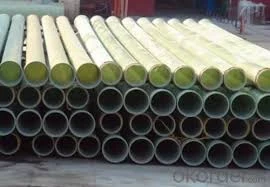
-
 Afrikaans
Afrikaans -
 Albanian
Albanian -
 Amharic
Amharic -
 Arabic
Arabic -
 Armenian
Armenian -
 Azerbaijani
Azerbaijani -
 Basque
Basque -
 Belarusian
Belarusian -
 Bengali
Bengali -
 Bosnian
Bosnian -
 Bulgarian
Bulgarian -
 Catalan
Catalan -
 Cebuano
Cebuano -
 China
China -
 China (Taiwan)
China (Taiwan) -
 Corsican
Corsican -
 Croatian
Croatian -
 Czech
Czech -
 Danish
Danish -
 Dutch
Dutch -
 English
English -
 Esperanto
Esperanto -
 Estonian
Estonian -
 Finnish
Finnish -
 French
French -
 Frisian
Frisian -
 Galician
Galician -
 Georgian
Georgian -
 German
German -
 Greek
Greek -
 Gujarati
Gujarati -
 Haitian Creole
Haitian Creole -
 hausa
hausa -
 hawaiian
hawaiian -
 Hebrew
Hebrew -
 Hindi
Hindi -
 Miao
Miao -
 Hungarian
Hungarian -
 Icelandic
Icelandic -
 igbo
igbo -
 Indonesian
Indonesian -
 irish
irish -
 Italian
Italian -
 Japanese
Japanese -
 Javanese
Javanese -
 Kannada
Kannada -
 kazakh
kazakh -
 Khmer
Khmer -
 Rwandese
Rwandese -
 Korean
Korean -
 Kurdish
Kurdish -
 Kyrgyz
Kyrgyz -
 Lao
Lao -
 Latin
Latin -
 Latvian
Latvian -
 Lithuanian
Lithuanian -
 Luxembourgish
Luxembourgish -
 Macedonian
Macedonian -
 Malgashi
Malgashi -
 Malay
Malay -
 Malayalam
Malayalam -
 Maltese
Maltese -
 Maori
Maori -
 Marathi
Marathi -
 Mongolian
Mongolian -
 Myanmar
Myanmar -
 Nepali
Nepali -
 Norwegian
Norwegian -
 Norwegian
Norwegian -
 Occitan
Occitan -
 Pashto
Pashto -
 Persian
Persian -
 Polish
Polish -
 Portuguese
Portuguese -
 Punjabi
Punjabi -
 Romanian
Romanian -
 Russian
Russian -
 Samoan
Samoan -
 Scottish Gaelic
Scottish Gaelic -
 Serbian
Serbian -
 Sesotho
Sesotho -
 Shona
Shona -
 Sindhi
Sindhi -
 Sinhala
Sinhala -
 Slovak
Slovak -
 Slovenian
Slovenian -
 Somali
Somali -
 Spanish
Spanish -
 Sundanese
Sundanese -
 Swahili
Swahili -
 Swedish
Swedish -
 Tagalog
Tagalog -
 Tajik
Tajik -
 Tamil
Tamil -
 Tatar
Tatar -
 Telugu
Telugu -
 Thai
Thai -
 Turkish
Turkish -
 Turkmen
Turkmen -
 Ukrainian
Ukrainian -
 Urdu
Urdu -
 Uighur
Uighur -
 Uzbek
Uzbek -
 Vietnamese
Vietnamese -
 Welsh
Welsh -
 Bantu
Bantu -
 Yiddish
Yiddish -
 Yoruba
Yoruba -
 Zulu
Zulu
Exploring GRP Chemical Solutions for Diverse Industrial Applications and Innovations
Understanding GRP Chemical Products A Comprehensive Overview
Glass Reinforced Plastic (GRP), also known as Fiberglass Reinforced Plastic (FRP), has emerged as a versatile composite material widely used in various industries. GRP chemical products leverage the unique properties of fiberglass combined with resins to deliver exceptional strength, corrosion resistance, and lightweight characteristics. This article delves into the significance, applications, and advantages of GRP chemical products.
GRP chemical products are particularly renowned for their durability and resistance to harsh environments. These materials can withstand chemical exposure, which makes them ideal for applications in the chemical processing industry. Industries handling aggressive chemicals benefit from GRP components, which do not degrade or corrode like metals or other conventional materials. Consequently, GRP products enhance safety and reduce maintenance costs, making them a financially viable option in the long run.
Understanding GRP Chemical Products A Comprehensive Overview
One of the most common uses of GRP chemical products is in tank and pipe construction. GRP tanks are extensively employed for the storage of chemicals, water, and hazardous materials. Their corrosion-resistant properties prolong their lifespan and reliability, significantly reducing the risk of leaks and spills. Similarly, GRP pipes are utilized across various industries due to their ability to transport chemicals safely without the risk of contamination.
grp chemical product

Moreover, the electrical insulating properties of GRP make it a preferred choice in the electrical and telecommunications industries. GRP products provide effective insulation and protection against environmental factors, which is crucial for maintaining the integrity of electrical systems.
In the construction sector, GRP is increasingly being used in building façades, structural panels, and roofing due to its aesthetic appeal and functional benefits. Architects and designers appreciate GRP for its versatility in design possibilities, allowing for innovative shapes and structures that were previously challenging to achieve with traditional materials.
Another significant advantage of GRP chemical products is their sustainability. Many manufacturers are now focusing on producing eco-friendly resins, further enhancing the material's appeal to environmentally conscious industries. GRP's lightweight nature also contributes to lower transportation costs and reduced energy consumption during handling and installation.
In conclusion, GRP chemical products are a pivotal element in modern manufacturing and construction, offering unparalleled benefits in terms of strength, durability, and versatility. Their expansive application range—spanning chemical processing, construction, and electrical sectors—highlights their growing importance in the industry. As technology continues to evolve, GRP products are likely to become even more integral to various fields, paving the way for innovations and improvements in sustainability practices.









